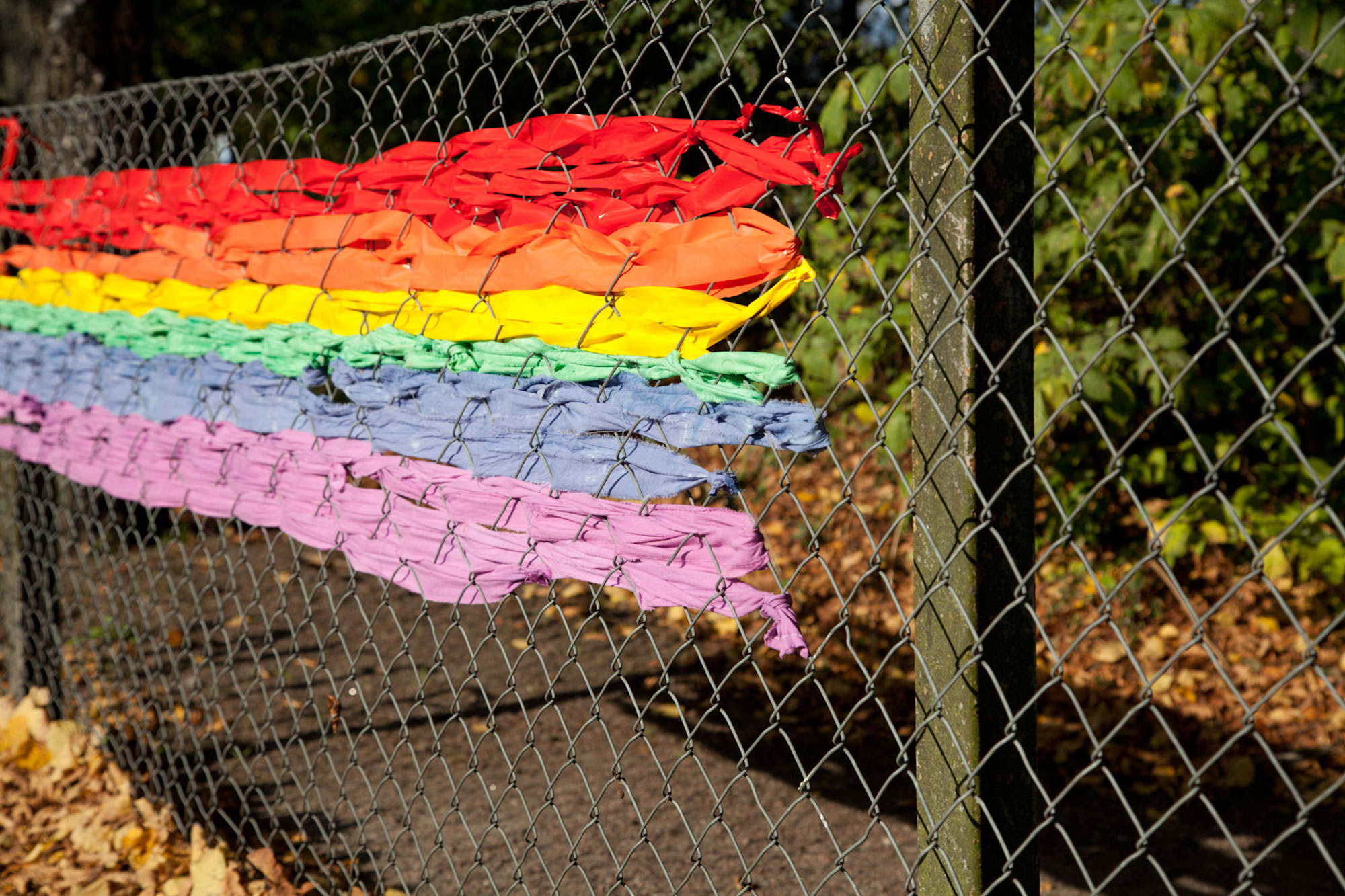Former PhD candidate in Social Anthropology, Dr Carin Tunåker, gave a talk at the 50 Years After Stonewall’ conference at the University of Edinburgh this September, where she talked about her research into homelessness for young people who identify as Lesbian, Gay, Bisexual, Transgender and other sexual/gender minorities (LGBT+).
Dr Tunåker’s talk, entitled LGBT+ Youth Homelessness as a Consequence of Progress, raised the issue of young people becoming homeless due to their sexual and/or gender identities, which is a hidden social problem that needs significantly more attention. Approximately a quarter of the young homeless population in the UK identify as LGBT+, but little-to-none of funding is available to support them.
Dr Tunåker argues that, although LGBT rights have progressed since the Stonewall riots and people’s lived realities in England have conceivably improved since then, there is a dark side to this progress. Young people are now more confident to come out as LGBT+ at much earlier ages, and the consequence of this is a rise in LGBT+ youth homelessness.
Due to political and legal advances in gay rights and an increased media presence of charismatic LGBT+ role models, youth are changing their outlook on sexuality and gender identity, but, paradoxically, due to generational differences and different opinions, some meet difficulties at home. For complex reasons, young people encounter challenges that they may not have expected or anticipated, and their coming out is far from the ideal that they envisioned based on media-fuelled expectations of open arms, acceptance and normality.
Quantitative data mostly show unrealistic figures that obscure the severity of LGBT+ youth homelessness, due to the difficulty of monitoring taboo and sensitive characteristics. Subsequently, homeless LGBT+ individuals are not recognised by funding bodies and the State as a significant population and, therefore, resources are not allocated to alleviate their challenges.
The broader politico-legal advances in LGBT+ rights are not yet resonating fully in the reality and lived experiences of LGBT+ individuals, who experience exclusion by living outside of the norm in terms of their sexuality/gender identities, as well as living outside of normative institutions such as the educational system, home and the family. In order to prevent homelessness being the consequence of progress, we need to navigate progress with caution and ensure the younger generations have appropriate advice, support and guidance.
As a result of Dr Tunåker’s work in Kent, through her postgraduate research and continued activism, the NHS have now funded a new initiative, the BeYou Project, that provides support and advice across the county for young people identifying as LGBT+, which includes a dedicated website with relevant and safe information for LGBT+ youth and their parents, in order to also prevent LGBT+ youth homelessness in the county.
Dr Carin Tunåker is a Social Anthropologist specialising in LGBT+ youth homelessness. She has worked, and completed, research in the homelessness sector in South East England for ten years. She currently holds a position as post-doctoral research associate examining gender inequalities and intersectionality in Higher Education through the Athena SWAN charter, at the University of Kent’s School of Social Policy, Sociology and Social Research. Dr Tunåker is the author of No Place Like Home: Locating homeless LGBT youth in Home Cultures and she acts as consultant for LGBT+ homelessness projects across the UK. Her research interests are in housing, homelessness, social justice, gender, sexuality and social inequalities.

